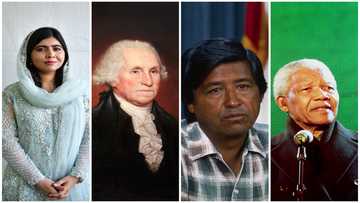Who invented school? History and facts about school invention
Education, the cornerstone of civilisation, has helped shape societies and individuals. From early man and his cave paintings to online classes of the modern era, pursuing knowledge has been a fundamentally human endeavour. But have you ever wondered when formal education came to be? And who invented school?

Source: UGC
The invention of the school is a testament to humankind's enduring quest for knowledge and enlightenment. The concept of an institutionalised education system has shaped human history by fostering innovation and nurturing minds. However, many are unaware of the history behind the education staple.
Who invented school?
Who invented education and why? According to the World History Encyclopedia, the Sumerians invented the first schools following the creation of writing around 3500 BC. The Sumerians invented education to train scribes and priests.
The earliest schools were attached to temples where priests presided but later moved to separate buildings called eduba or edubbas (tablet houses). Most education was for wealthy families who studied from sunrise to sunset. Sumerians focused on studying complex grammar and practised writing on dried clay tablets.

Read also
GMB contestant Miss Amoani's shows gratitude to TV3 for the opportunity to promote STEM education in Ghana
In the United States, Horace Mann, a politician, education reformer and professor of education, receives credit for the modern version of the school system. After visiting Germany in 1843, he adopted its system in Massachusetts, creating America's first compulsory education system.
School invention history
Various ancient civilisations introduced the institutionalised system of education in different periods. Here is a breakdown of school invention history facts.
China

Source: UGC
According to history and legendary accounts, Chinese rulers Yao and Shun established the first educational institution around the 24th and 23rd centuries BC. From the 21st century BC to the 20th century BC, the Xia dynasty created the first education system, building government schools to educate aristocrats in rituals, archery, and literature.
North Africa and the Middle East
The earliest form of education in the Middle East can be traced back to the Sumerians of Mesopotamia in 3500 BC. They used a logographic system of cuneiform script, which evolved into the syllabic script.
In North Africa, the earliest formal school was developed in Egypt around the 21st century BC from 2010s BC to 2060s BC. Just like in Mesopotamia, education in Ancient Egypt was to create an educated ruling class of scribes and priests who could read and write.
Greece
Education in Greece began in the 6th century BC but was informal. The system consisted of the Athenian systems focusing on physical and intellectual. The physical aspect comprised gymnastics, a physical education focusing on strength and stamina, while the academic part consisted of music, dance, lyrics and poetry.
India
In ancient India, education was informal and passed on orally rather than in written form. Education was a process that involved three steps: Shravana (hearing), Manana (reflection) and Nididhyāsana (application of knowledge).
The Gurukula education system (from the 11th century BC) supported traditional Hindu residential schools of learning (a teacher's house or a monastery). In the Gurukula system, students would leave their families and homes to live with the teacher (guru) in a Gurukul.
Primary school invention history

Source: UGC
Primary school was first invented in 1870 in England following the beginning of compulsory state education. However, the genesis of primary education dates back to the 15th century, when religious communities became education providers and defined the curriculum. The system led to the introduction of formal education in madrassas and schools.
The primary or elementary school represents the foundational stage of compulsory education worldwide. While primary school is the preferred terminology in the United Kingdom and many Commonwealth nations, Elementary or Grade school is favoured in the United States and Canada.
The following sections delve into various countries' primary and elementary school invention history.
United States of America
According to Race Forward, the first Elementary schools in the United States were first promoted in 1647 by the General Court of the Massachusetts Bay Colony. The decree dictated that every town of fifty families was supposed to have an elementary school.

Read also
Who invented homework and why? Here is everything you need to know about homework invention and history
England and Wales
In 1870, in England and Wales, the introduction of elementary schools, commonly called Board Schools, took place due to the Forster Act, officially known as the Elementary Education Act of 1870.
These institutions underwent a significant transformation in the late 1940s, becoming primarily known as primary schools per the pivotal agreement reached in the 1944 Education Act.
Japan
According to Japan's Ministry of Education, the government first founded Japan's elementary schools in 1875. In Japan, elementary school encompasses students between the ages of 6 and 12.
Who was the first teacher?
There are no historical records to provide specific details about the first teacher. However, notable figures from ancient times, such as Kong Fuzi (Confucius) of China and Socrates of Greece, are regarded as the first teachers.
Who was the first to make a school?

Source: UGC
According to history, the Sumerians of Mesopotamia were the first civilisations to develop the school concept. Other notable names include the Chinese rulers Yao and Shun, who established the first academy around the 24th and 23rd century BC.
Who invented homework?
Various names get credited with inventing homework. They include King Fredrick the Great of Purrsian, Horace Mann of the United States and Roberto Novellis, a teacher from Venice.
Who invented school? There isn't a single individual attributed to the invention of the structured educational institution. However, the system traces its roots to early civilisations like the Sumerians of Mesopotamia, the Greeks, and the Egyptians. These civilisations contributed a lot to the long history and evolution of education.
Yen.com.gh recently featured Elon Musk's inventions. Elon Musk, an esteemed American billionaire entrepreneur and inventor, has left an indelible mark on the world with his outstanding contributions.
Musk's remarkable inventions and entrepreneurial endeavours have propelled him into the upper echelons of the world's wealthiest individuals. In addition, they have earned him widespread recognition as a premier innovator and visionary creator. But, among his inventions, which are the most exceptional?
Source: YEN.com.gh




